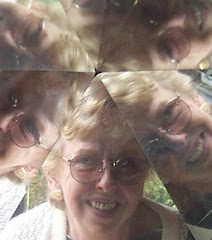This morning on CNN I saw a journalist talking about the Washington Post sending out a memo to all its journalists stating that if they were on twitter, they could not reveal any political biases, prejudices, or opinions that suggested such. The wording here is not word for word since I was dumbfounded by what I was hearing and didn’t think to grab pencil and paper, but this is basically paraphrasing of what was said. The Wash. Post apparently doesn’t want to be seen as hiring journalists who make public their opinions, and I can see why – even if the people responding by email or tweet failed to see it.
In the first place, I took four years of journalism in high school and college, and the most important thing we were taught following, “get it, get it right, and get it right the first time,” was to never, ever allow our opinions to creep into our articles. This was seen as unprofessional and grounds for dismissal from any legitimate news organization. Save it for the editorial page.
But professionalism? Who cares about that anymore? We all should care. The integrity of any news organization rests solely on how accurately their journalists report what is happening in the world today, and if any one of them is seen as biased, that colors everything they say from then on. I can think immediately of one “news” organization on TV that claims its reporting is fair and accurate, but anyone who watches for a few minutes soon realizes it is anything but. Now if you happen to agree with its newscaster’s opinions, you may be pleased with what you are hearing. However, if any viewer values honesty, integrity and professionalism, they have to realize slanted news stories cannot be totally accurate. These so-called “newscasts” are in fact, nothing but editorials cloaked as news stories. In other words, someone’s opinion!
The most disturbing problem to me about the emails and tweets coming into CNN was how most of the correspondents were so willing to accept slanted stories as news. One said “how can we make informed decisions unless we know where the newscaster stands?” Again, this is paraphrasing. But if anyone needs to know where someone else stands on any topic, that means he or she doesn’t know how to think critically and to reason based on facts, not on someone else’s opinion. I’m wondering, what kind of decision do they make if they don’t like the newscaster? Or do they simply tune it out if it’s coming out of the mouth of someone they don’t like? Do they believe anything they hear from someone they relate to? That’s scary – since I’m guessing anyone with this mindset probably doesn’t relate very well to an intelligent, thoughtful person with integrity. My guess is that this kind of person will only relate to one of the “screamers” on TV news –someone who has to get emotional about their likes and dislikes to make viewers or listeners believe them.


1 comment:
The Value of Values
www.strategicpublishinggroup.com/title/thevalueofvalues.html
An individual’s values are established in childhood and serve as filters when determining right from wrong throughout the person’s life. In today’s society, the process of establishing values within children is given little concern. People place greater emphasis on day to day activities and personal ambitions, than they do on the establishment of values within their children. By default, parents are teaching their children that values such as integrity, respect for life, courage of conviction, a purposeful life and generosity, are secondary to making a living.
In truth, there is nothing preventing us from being true to good and meaningful values, nor is anything preventing us from teaching our values to our children. It is a matter of priorities; a matter of choice.
In the “The Value of Values” you will learn why a transition to a more values-conscious society is important. You will learn exactly what is needed from each individual and the activities that will sustain the drive. “The Value of Values” is a must read for every parent that is concerned about our society and the challenges our children will be facing.
We have three possible choices:
1) Do nothing different than that which we have been doing. Complacently accept things as they are and will be.
2) Hope that someone else will make the needed changes within our society, despite the fact it has yet to be done, and no one displays the integrity needed to influence an entire society.
3) Accept our personal responsibility to our children. Accept that real change is not passed down from leaders, but rather, it is driven up from the people. Accept the fact that we each have within us the ability and incentive to make things different for our children and grand children.
The choice we make today will determine the society of tomorrow.
Post a Comment